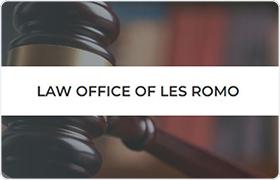 Weir Timeshare Lawyers, Texas
Weir Timeshare Lawyers, Texas
Sponsored Law Firm
-
 x
x

Click For More Info:
-
Law Office of Les Romo
102 West Morrow Street Suite 202 Georgetown, TX 78627» view mapEstate Law Helping You Understand Your Options
Attorney Les Romo can help protect your interests and resolve your legal issue in the best possible way. Attorney Romo is dedicated to vigorously representing his clients.
800-769-7481
Warning! No lawyers found in this specified area.
Not enough matches for Weir Timeshare lawyer.
Below are all Weir Real Estate lawyers.
Lawyers
1-0 of 0 matches



 Les Romo Georgetown, TX
Les Romo Georgetown, TX Practice AreasExpertise
Practice AreasExpertise